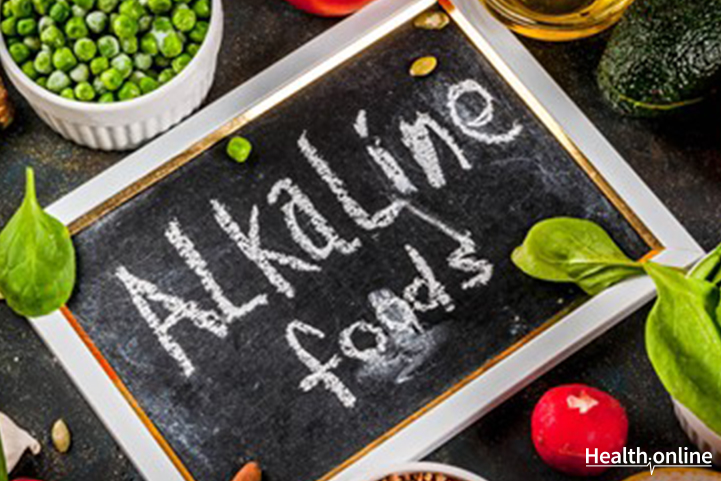
The Alkaline Diet Demystified
There has been a lot of talk about the Alkaline diet. Read on to get the answers to any questions you have. But first, it’s important to understand what alkalinity is.
Alkalinity
The human body needs to maintain 7.35 to 7.45 of pH levels to function properly and to create homeostasis. The range is normally between 0 – 14. Zero means the system is most acidic and 14 means the body is most alkaline. It is neutral at 7.
Alkaline diet
The alkaline diet ideally aims to enhance your health. The study shows that some foods are more acid forming while others are base-forming foods which reaches your kidneys after being digested and absorbed. Hence, the idea is to put emphasis on fruits and vegetables. The advocates of this diet believe that high consumption of acid-producing foods adversely affects the blood’s normal pH level and, in turn, leads to loss of essential minerals as the body attempts to reinstate equilibrium. This imbalance may lead to increase exposure to illnesses.
What are the benefits
Thorough research has yet to be done on the benefits of this diet. However, some study results suggest that the alkaline diet may offer these health benefits –
Glowing skin
One of the important causes for all skin problems is acid in your system. Skin is the largest organ of your body and it’s important for an organ to detoxify itself. Avoiding acidic foods like sugar, grains and high consumption of water helps in eliminating toxins from the system.
Abundant physical energy
Your physical energy indicates how healthy your system is. Adequate pH levels in the system ensures that your organs are functioning fine. One of the most important ingredient in keeping your system healthy and your pH levels in check is Water. One can make it more alkaline by adding organic lemon or Celtic grey salt.
Prevent osteoporosis
Yes, osteoporosis is also an acid problem. The blood pH levels can be affected due to dietary, metabolic and environmental toxins. To neutralize the pH levels, the body requires minerals. If your food doesn’t provide enough of it, then the system starts to extract it from the bones as calcium. Hence, it is essential to consume foods that can provide the necessary minerals to your body.
Recommended Read: Introduction and Prevalence of Osteoporosis
Lowers risk of hypertension and stroke
Alkaline diet helps in increasing the production of growth hormone while decreasing inflammation. This effect has been shown to offer protection against common problems like hypertension and cholesterol, and improve cardiovascular health, strokes, etc.
Some of the other benefits include good digestion, deep restful sleep, avoids arthritis, increased mental awareness etc.
There are also some who believe that it gives immunity against cancer, helps with kidney diseases, etc. However, it’s not be scientifically proven and there is a requirement for more detailed and confirmed research to prove it.
Safety guidelines to be kept in mind
- In case you’re on medication or have a health condition, do ensure that you consult with your doctor before getting on the diet
- While following the diet, it is important to consider other factors like protein or overall calorie intake , which can lead to health problems like nutrient deficiency or excessive weight loss.
- Some of the products marketed as alkaline products, are not guaranteed to be safe.
Alkaline foods
The human body comprises approximately 80 percent alkaline and 20 percent acid; hence the diet should be balanced in the same way. Here are some of the best and worst foods for the alkaline diet
Foods to be consumed:
- Beet Greens
- Spinach
- Kale
- Fruits
- Sweet potato
- Celery
- Hazelnuts
- Eggplant
- Zucchini
- Cauliflower
Recommended Read: 5 Best Sweet Potato Recipes
Foods to be avoided:
- Meat
- Dairy
- Grains
- Legumes
- Eggs
- Nuts
- Vegetable oils
- Alcohol
- Coffee
- Refined sugar
Diet plan:
Breakfast:
Veggie scramble: 1–2 eggs, scrambled with vegetables like green onions, tomatoes, chopped leafy green, and bell peppers.
Cup of ginger or lemon tea.
Snack:
1 Apple
Handful toasted pumpkin seeds.
Lunch:
Lentil soup with 2 cups of steamed vegetables (broccoli, kale, carrots, onions). Sprinkle olive oil salad dressing on lightly steamed vegetables
Dinner:
4 oz. serving of any meat – fish, chicken or turkey with a baked yam or sweet potato and a mixed garden salad.
Keep yourself updated with the latest on Diet & Nutrition. Like us on Facebook and follow us on Twitter for more on Health, Diet & Nutrition and Fitness. Also, check out our Health Tools and try out our health-related Quizzes.




